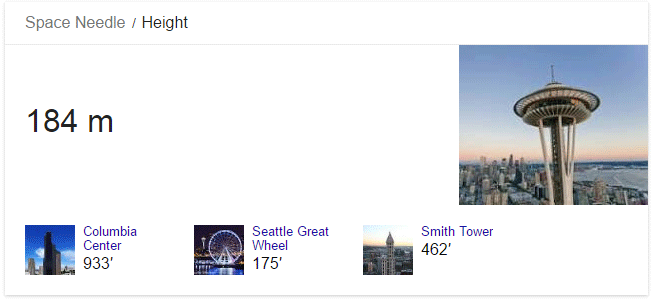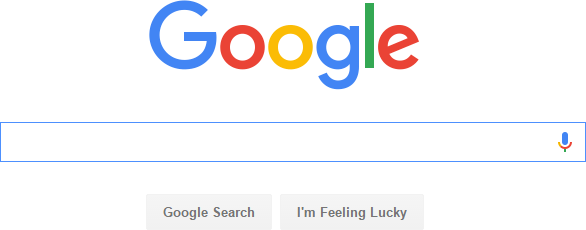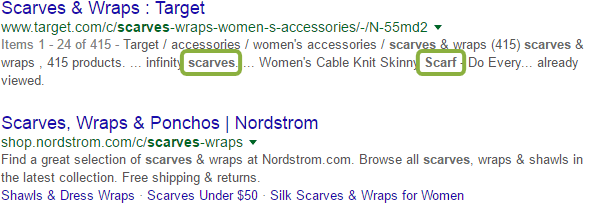Tactical Keyword Research in a RankBrain World
Keyword Research|Advanced SEO
Summary: RankBrain represents a more advanced way of measuring relevance, built on teaching machines to discover the relationships between words. How should RankBrain change our approach to SEO and specifically to keyword research?
This story starts long before RankBrain, but the action really kicked in around May of 2013, when Google announced conversational search for deskstop. At the time, voice search on desktop may have seemed like a gimmick, but in hindsight it was a signal that Google was taking natural language search seriously. Just a few months later the hummingbird update rewrote Google's core engine, and much of that rewrite was dedicated to dealing with natural language searches.
Why should you care about voice? For most sites, voice is still a relatively small percentage of searches, and you've got other priorities. Here's the problem, illustrated by the most simplistic Google algorithm diagram I've ever created...
If there were two algorithms – one for text search and one for voice search – then, yes, maybe you could drag your feet. The reality, though, is that both text and voice search are powered by the same core algorithm. Every single change Google has made to adapt to natural language searches impacts every search, regardless of the source. Voice has already changed the search landscape irreversibly.
Natural language in action
You may be skeptical, and that's understandable. So, let's take a look at what Google is capable of, right now, in 2016. Let's say you wanted to find the height of Seattle's iconic Space Needle. As a seasoned searcher, you might try something short and sweet, like this...
"Space Needle height"
Google understands this question well enough to attach it to the corresponding Knowledge Graph entity and return the following:

The corresponding organic results appropriately match the informational query and are about what we've come to expect. Google serves this search reasonably well.
The corresponding organic results appropriately match the informational query and are about what we've come to expect. Google serves this search reasonably well.
"What is the height of the Space Needle?"
Let's try to shake off our short-form addiction and try a natural language version of the same search. I won't repeat the screenshot, because it's very similar, as are the organic results. In 2016, Google understands that these two searches are essentially the same.
Let's try to shake off our short-form addiction and try a natural language version of the same search. I won't repeat the screenshot, because it's very similar, as are the organic results. In 2016, Google understands that these two searches are essentially the same.
"How tall is the Seattle Space Needle in meters?"
Let's try another variant, switching the "What" question for a "How" question, adding a location, and giving it a metric twist. Here's what we get back:
 Google understands the question and returns the proper units. While the organic results vary a bit on this one, reflecting the form of the question, the matches remain solid. Natural language search has come a long way.
Google understands the question and returns the proper units. While the organic results vary a bit on this one, reflecting the form of the question, the matches remain solid. Natural language search has come a long way.
Let's try another variant, switching the "What" question for a "How" question, adding a location, and giving it a metric twist. Here's what we get back:
Google understands the question and returns the proper units. While the organic results vary a bit on this one, reflecting the form of the question, the matches remain solid. Natural language search has come a long way.
Build great concepts!
This all may be a bit alarming, from a keyword research perspective. Natural language searches represent potentially thousands of variants of even the simplest queries. How can we possibly operate on this scale as search marketers?
The popular notion is that we should stop targeting keywords and start targeting concepts. This approach has a certain logic. The searches above share a general notion of "tallness," which might look something like this:
"Tall" and "height" are fairly synonymous, words like "size" and "big" are highly related, and units like "feet" and "meters" round out this concept. In theory, this makes perfect sense.
In practice, the advice to target concepts is a bit too much like saying "build great content." It's a good goal, in theory, but it's simply not actionable. How do we build great concepts? We all intuitively understand what a concept is, but how does this translate into specific search marketing tactics?
There's an even bigger problem, and I can illustrate it with one box:
 Ok, one box, a logo, and two buttons. At the end of the day, you can't type a concept. Search users, whether they're typing or speaking, have to put words into that box. So, how do concepts, which we all agree exist and are useful, translate into keywords, which I hope we can all agree are still unavoidably necessary?
Ok, one box, a logo, and two buttons. At the end of the day, you can't type a concept. Search users, whether they're typing or speaking, have to put words into that box. So, how do concepts, which we all agree exist and are useful, translate into keywords, which I hope we can all agree are still unavoidably necessary?
This all may be a bit alarming, from a keyword research perspective. Natural language searches represent potentially thousands of variants of even the simplest queries. How can we possibly operate on this scale as search marketers?
The popular notion is that we should stop targeting keywords and start targeting concepts. This approach has a certain logic. The searches above share a general notion of "tallness," which might look something like this:
"Tall" and "height" are fairly synonymous, words like "size" and "big" are highly related, and units like "feet" and "meters" round out this concept. In theory, this makes perfect sense.
In practice, the advice to target concepts is a bit too much like saying "build great content." It's a good goal, in theory, but it's simply not actionable. How do we build great concepts? We all intuitively understand what a concept is, but how does this translate into specific search marketing tactics?
There's an even bigger problem, and I can illustrate it with one box:
Ok, one box, a logo, and two buttons. At the end of the day, you can't type a concept. Search users, whether they're typing or speaking, have to put words into that box. So, how do concepts, which we all agree exist and are useful, translate into keywords, which I hope we can all agree are still unavoidably necessary?
Language in action, part 2
We need to take a side path on this journey for a moment. Part of rethinking keyword research is understanding that we're no longer bound by an exact-match world. This isn't a bad situation to be in, just a complex one. I'd like to tell a story with examples, showing just how far Google has come in understanding the ways that different keywords relate to each other...
We need to take a side path on this journey for a moment. Part of rethinking keyword research is understanding that we're no longer bound by an exact-match world. This isn't a bad situation to be in, just a complex one. I'd like to tell a story with examples, showing just how far Google has come in understanding the ways that different keywords relate to each other...
Plurals ("scarf" & "proxies")
While we all know the dangers of keyword stuffing, it originated out of a certain necessity. Search engines simply weren't capable of equating even simple terms, like plurals. Those days are long behind us. Google understands, for example, that a search for "scarf" should also return results for "scarves":

In these examples, I'll be using Google's own highlighting (the bold text; I've added the green boxes) to show where Google seems to understand equivalence or related concepts. Of course, Google's core relevance engine and highlighting engine are not exactly the same, but I think it's safe to say that the latter is a useful window into the former.
Google is also fully capable of understanding the reverse. Let's say, for example, that a "friend" of mine wants to buy proxy IPs. He might search for "proxies":
 Google can easily understand even irregular plurals in both directions.
Google can easily understand even irregular plurals in both directions.
In these examples, I'll be using Google's own highlighting (the bold text; I've added the green boxes) to show where Google seems to understand equivalence or related concepts. Of course, Google's core relevance engine and highlighting engine are not exactly the same, but I think it's safe to say that the latter is a useful window into the former.
Google is also fully capable of understanding the reverse. Let's say, for example, that a "friend" of mine wants to buy proxy IPs. He might search for "proxies":
Google can easily understand even irregular plurals in both directions.
Stemming ("ballroom dancer")
Plurals are relatively easy. Let's step it up a little. Another frequent problem in search is dealing with stemming, which relates to root words and the forms they can take, such as "run" vs. "running." Here's a sample search for "ballroom dancer":

Google is perfectly capable of equating "dancer" to other forms of the word, including "dances," "dance," and "dancing." Once again, keyword stuffing is at best outdated thinking.
Plurals are relatively easy. Let's step it up a little. Another frequent problem in search is dealing with stemming, which relates to root words and the forms they can take, such as "run" vs. "running." Here's a sample search for "ballroom dancer":
Google is perfectly capable of equating "dancer" to other forms of the word, including "dances," "dance," and "dancing." Once again, keyword stuffing is at best outdated thinking.
Abbreviations ("Dr. Who")
Can Google recognize common abbreviations? Let's try a search for our second-favorite doctor (hint, hint, wink), "Dr. Who":

Google easily makes the connection between "Dr." and "Doctor." Interestingly, none of the organic titles or snippets I see on page one contain the word "Dr."
Google easily makes the connection between "Dr." and "Doctor." Interestingly, none of the organic titles or snippets I see on page one contain the word "Dr."
Acronyms ("SNL skits" & "TARDIS")
How about acronyms? Here's a search for "SNL skits":

Google has no problem interpreting "SNL" as equivalent to "Saturday Night Live." Interestingly, they also understand that "skits" is synonymous with "sketches." What if we spell out an acronym that isn't usually spelled out, such as "Time And Relative Dimension In Space"?
Here, Google is happy to tell us "Hey, nerd, just say 'TARDIS' like everyone else." The six-letter acronym is interchangeable with even the much longer search string.

Here, Google is happy to tell us "Hey, nerd, just say 'TARDIS' like everyone else." The six-letter acronym is interchangeable with even the much longer search string.


No comments:
Post a Comment